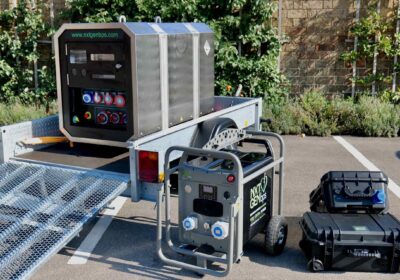
October Newsletter
NXTGENbps Round Up News NXTGENbps provides sustainable solutions to Get Set Hire inventory We’re thrilled to see our Goat and InstaGrid ONE Max battery power solutions as part of the Get Set Hire inventory. Get…
(read more)
NXTGENbps Round Up News NXTGENbps provides sustainable solutions to Get Set Hire inventory We’re thrilled to see our Goat and InstaGrid ONE Max battery power solutions as part of the Get Set Hire inventory. Get…
(read more)
We are proud to have been a part of The Fuel Project, an important research initiative led by Film London and Creative Zero, focused on decarbonising transport and mobile power within the film and television…
(read more)
The entertainment industry has successfully navigated several major technological shifts over the years, such as moving from Standard Definition (SD) to High Definition (HD) and transitioning from tape-based workflows to digital files. Both of which…
(read more)
NXTGENbps was proud to sponsor an incredible group of cyclists, including our own Director of Sustainability, Lesley Marr, on a challenging journey through Northern Corsica. This year, the team took on the task of riding…
(read more)